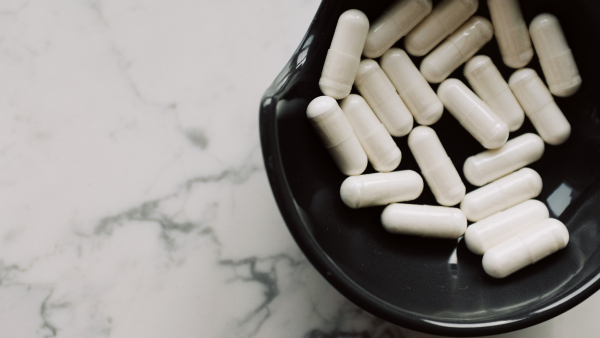
It is now well researched that the microbes of the skin and gut are vital to the immunologic, hormonal, and metabolic functioning of the body. With a high prevalence of antibiotic use in our society today, it is a major consideration of Naturopathic practitioners when treating a variety of conditions and being able to address the underlying cause.
What is the microbiome?
The term ‘microbiome’ covers a whole range of micro-organisms, including bacteria, viruses, and fungi and the environment surrounding them. Within this array of microbes there are various groups that serve their own unique role in our overall health which include; commensals, symbiotic, and pathogenic micro-organisms found in a fixed environment. The number of microbial cells in the human body alone is 10 times the number of human cells!
How do antibiotics affect the microbiome?
When the human microbiome is overly exposed to antibiotics, as a result of medical use and exposure from farm animals and crops, the composition / balance can be drastically altered. Research shows that broad-spectrum antibiotics affect the abundances of 30% of the bacteria in the gut community. This results in significant drops in bacterial diversity and stability, with potential immediate and long-term side effects on health. This is due to our microbiome interacting with many processes in the body such as regulating our immune and metabolic systems, as well as directly impacting other sites of diversity in the body like the respiratory system and skin. This can then exacerbate inflammatory conditions and lower immunity in addition to reducing the overall health of the tissue with the gastrointestinal tract.
It is important to also note that once antibiotic treatment has stopped, the microbiota does display resilience and is capable of bouncing back to a composition similar to its original state. However, it will not be totally recovered. In fact, antibiotic-induced microbiota alterations can remain after long periods of time, spanning months and even years.
Gut-Skin Axis - how do they link?
The gut and skin have crucial immune and neuroendocrine roles and are uniquely related in purpose and function. The gut microbiome appears to influence the skin microbiome as well, therefore antibiotic treatments can impact the homeostasis of the skin! Not only will they modulate the commensals of the gut, but they also disturb intestinal barriers in which bacteria and microbiota metabolites can gain access to the bloodstream and accumulate in the skin causing more damage and progression of skin conditions. It has now been well documented that with intentional modulation of the microbiome (via the use of probiotics, prebiotics, and synbiotics), there has been the successful treatment and prevention of inflammatory skin diseases including acne vulgaris, atopic dermatitis as well as eczema and psoriasis.
I’ve taken antibiotics - what can I do?
If you’ve taken a course of antibiotics recently, in the past or may need to take them in the future, there are a few simple steps you can take to negate the adverse side effects they may have on your gut microbiome and skin health. These include:
-
Take a high quality, practitioner grade probiotic to help preserve and rebuild the commensal bacteria in the gut and reduce antibiotic associated side effects (such as diarrhea) post treatment.
-
Increase food sources to aid the health and healing of your gut including bone broths, prebiotics fibres or fermented foods (like sauerkraut & kimchi).
-
Complete further functional investigations if you'e experiencing digestive or skin symptoms post treatment (such as microbiome mapping), which will aid in understanding the different populations and balance of bacteria in your gut.
For further assistance and support to address your gut and skin health, book in to see one of our Melbourne Wellness Naturopaths by calling 9894 0014 or emailing info@melbournewellness.com.au.
** If you are currently taking or planning to take antibiotics, always consult your doctor or medical professional prior to and/or after your treatment. The information provided is for educational purposes only and should not be construed as medical advice for your current treatment options.
References
Francino, M. (2016). Antibiotics and the Human Gut Microbiome: Dysbioses and Accumulation of Resistances. Frontiers In Microbiology, 6. doi: 10.3389/fmicb.2015.01543
Salem, I., Ramser, A., Isham, N., & Ghannoum, M. A. (2018). The Gut Microbiome as a Major Regulator of the Gut-Skin Axis. Frontiers in Microbiology, 9. doi:10.3389/fmicb.2018.01459
Szajewska H, Kołodziej M. Systematic review with meta‐analysis: Saccharomyces boulardii in the prevention of antibiotic‐associated diarrhoea. Aliment Pharmacol Ther. 2015 Oct;42(7):793-801 DOI: 10.1111/apt.13344.

